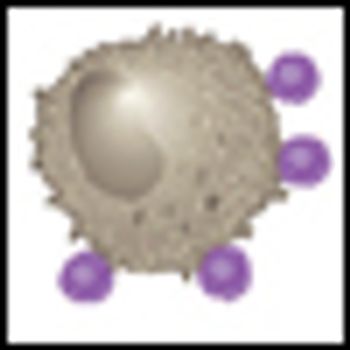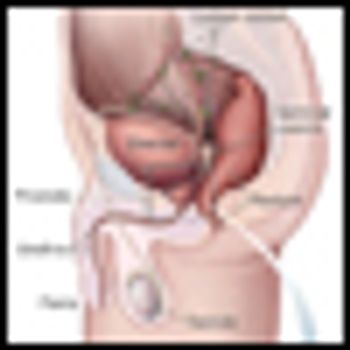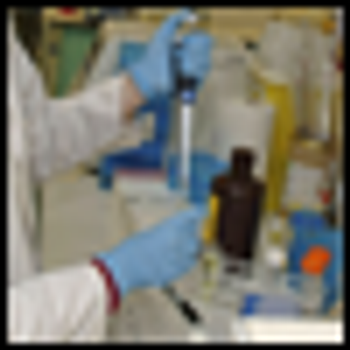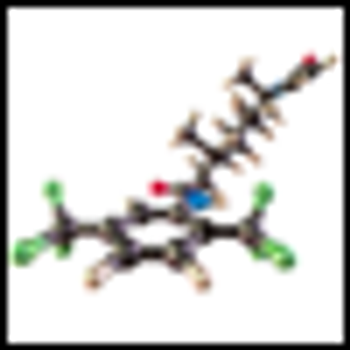
As a clinician and researcher in the prostate cancer field, I have been hearing that prostate cancer is “20 years behind” breast cancer now for the last 25 years!

Your AI-Trained Oncology Knowledge Connection!



Aggressive Prostate Cancer: High Blood Levels of Omega-3s Doubled the Risk, but High Levels of Trans–Fatty Acids Cut Risk in Half

As a clinician and researcher in the prostate cancer field, I have been hearing that prostate cancer is “20 years behind” breast cancer now for the last 25 years!

For many years, the results of large randomized clinical trials of cancer vaccines have not been good.

Prostate cancer is the second-leading cause of death in men in the United States; more than 217,730 new cases were expected to be diagnosed in 2010.[1] Although the majority of patients with advanced prostate cancer have an initial response to androgen deprivation, essentially all patients eventually progress to a castration-resistant state, manifested by rising levels of prostate-specific antigen (PSA),

In a population-based screening study of nearly 20,000 men in Rotterdam, men with baseline prostate-specific antigen (PSA) levels < 3 ng/mL were at very low risk of developing prostate cancer.

In a study reported in Nature online on February 2, researchers describe a four-gene signature that was more accurate than the standard Gleason score test in predicting which patients would die from metastatic spread of their prostate cancer.

Researchers at the Queen Mary U. of London and a team of collaborators have identified a genetic signature among prostate tumors that may facilitate determining appropriate course of treatment for patients. The results of the study will be published in the March 2011 issue of Lancet Oncology.

The GlaxoSmithKline (GSK) drug Avodart (dutasteride), already approved for treatment in men with enlarged prostate glands, has been rejected by the FDA for the additional indication of reducing the risk of prostate cancer.

Dong quai is a perennial herb native to China, Japan and Korea; its root has been used for thousands of years as medicine.

The number of patients in the U.S. treated with radiation has increased at an average annual rate of about 7% between 2007 and 2009, according to the “2010 Radiation Therapy Market Summary Report” by IMV. Breast, prostate, and lung cancers continue to be the cancer types treated most frequently with radiation.

The prostate cancer drug Provenge (sipuleucel-T) offers a moderate survival benefit to patients, according to an analysis performed by the U.S. Centers for Medicare and Medicaid Services. The analysis was undertaken as part of a CMS review initiated in July to determine whether to cover the cost of the therapy.

The article by Rove et al represents a comprehensive review of the recent clinical advances in the treatment of metastatic, castrate-refractory prostate cancer. The therapeutic armamentarium for the treatment of prostate cancer remains limited compared to other malignancies, such as breast cancer. It took approximately 14 years after mitoxantrone data emerged for us to see the approval of another chemotherapy agent, docetaxel. The successful outcome of recent clinical trials confirms that true advancement in prostate cancer treatment can be achieved by rational and rigorous clinical testing, but participation in prostate cancer clinical trials remains low, especially participation by African-American patients. Research study enrollment should be a high priority for those health care professionals who treat this disease.

Resistance to androgen deprivation is an ominous milestone in the natural history of metastatic prostate cancer:this disease state, now referred to as castration-refractory prostate cancer (CRPC), is historically associated with a median survival of less than two years. Until recently, only docetaxel (in combination with prednisone or estramustine) demonstrated a benefit in overall survival vs comparator therapy with mitoxantrone plus prednisone.[1,2] However, in the past year, compelling data in support of several promising new treatments for CRPC have been reported. The new data offer evidence-based treatment options, but also raise many questions for patient management and future clinical research.

Prostate cancer will be diagnosed in one of six men during their lifetimes, and a small portion of these will progress after primary and salvage therapies. For many years, there were few treatment options for these patients after routine hormonal maneuvers, and standard of care since the early 2000s has consisted primarily of docetaxel, which improved survival over the previous first-line therapy mitoxantrone. In recent years, however, new therapies have begun to emerge to treat this devastating form of prostate cancer. This review examines the mechanisms behind these therapeutics and the key trials seeking to validate their clinical use.

Amidst controversy, the FDA finally approved the controversial prostate cancer therapy. Hopes are high that Provenge represents the first in a long line of effective immunotherapeutics.

Two doctors, formerly with CMS, make a case for comparative effectiveness. Their paper is sure to spark heated debate within the prostate cancer community--as always, never a dull moment in prostate cancer.

The threshold for physicians to accept worthiness of chemoprevention with 5-α reductase inhibitors remains high.

Cabazitaxel is a microtubule inhibitor in the taxane class. It is made from a yew needle precursor using a semisynthetic process. It binds to free tubulin, which is used during mitosis to form two daughter cells.

The brothers of men with prostate cancer face a higher disease risk because of increased diagnostic activity, and not necessarily because they carry a genetic mutation that increases risk of the disease, according to a Swedish study.

New studies show dramatic results in overall and progression-free survival, but not all patients will benefit from aggressive treatment.

Androgen deprivation therapy (ADT) has been used in the management of prostate cancer for more than four decades. Initially, hormone therapy was given largely for palliation of symptomatic metastases. Following several randomized trials of patients with intermediate- to high-risk prostate cancer that demonstrated improvements in biochemical control and survival with the addition of ADT to external beam radiotherapy, there was a dramatic increase in the use of hormone therapy in the definitive setting. More recently, the safety of ADT has been questioned, as some studies have suggested an association of hormone therapy with increased cardiovascular morbidity and mortality. This is particularly worrisome in light of practice patterns that show ADT use extrapolated to situations for which there has been no proven benefit. In the setting of dose escalation with modern radiotherapy, in conjunction with the latest concerns about cardiovascular morbidity with ADT, the magnitude of expected benefit along with potential risks of ADT use must be carefully considered for each patient.

Adjuvant hormonal deprivation therapy is often administered long-term to patients with hormone receptor–positive cancers for primary prevention of breast cancer and secondary prevention of a recurrence.[1,2] This treatment modality is of particular importance to the elderly for two reasons: 1) the incidence of hormone-sensitive cancers (eg, prostate cancer and breast cancer) increases with age,[3] and 2) the systemic treatment regimens for elderly patients with hormone-responsive cancers are often limited to long-term hormonal deprivation therapy (HDT), most commonly androgen deprivation therapy for prostate cancer and aromatase inhibitor therapy for breast cancer, with chemotherapy often omitted.[2,4]

The incidence of metabolic syndrome is rapidly increasing. Metabolic syndrome is associated with elevated morbidity and mortality secondary to cardiovascular disease, insulin resistance, and hepatic dysfunction. A body of evidence has already implicated metabolic syndrome as a cancer risk factor; emerging evidence now suggests that cancer survivors themselves may be at risk for developing metabolic syndrome as a result of their anti-cancer therapy. Treatment of both breast cancer and prostate cancer often involves hormone-modifying agents that have been linked to features of metabolic syndrome. Androgen suppression in men with prostate cancer is associated with dyslipidemia, increasing risk of cardiovascular disease, and insulin resistance. Anti-estrogen therapy in women with breast cancer can affect lipid profiles, cardiovascular risk, and liver function. Similar findings have been noted in men with testicular cancer treated with chemotherapy. In addition, several emerging therapies, including mammalian target of rapamycin (mTOR) inhibitors and targeted kinase inhibitors, are increasingly associated with some features of metabolic syndrome. As the number of cancer survivors continues to grow, consideration of these factors and of the risk of metabolic syndrome will become increasingly important when choosing between therapy options and managing long-term follow-up.

Androgen deprivation therapy (ADT) has been shown to be beneficial in combination with radiotherapy (RT) vs RT alone in multiple phase III randomized trials treating patients with high-risk prostate cancer. Drs. Fang, Merrick, and Wallner have concisely summarized the data in Table 1 of their article. The Radiation Therapy Oncology Group trial RTOG 86-10 has demonstrated that as little as 4 months of ADT in combination with RT can delay the time to development of metastatic disease by up to 8 years, compared with RT alone.[1] What’s more, longer durations of ADT (ie, 28 to 36 months) are superior to shorter durations (4 to 6 months), as evidenced by the results of RTOG 92-02 and the European Organisation for Research and Treatment of Cancer trial EORTC 22961. Therefore, a long-term duration of ADT (ie, 24 to 36 months) is an accepted standard of care in combination with RT for patients with high-risk disease.

The role, timing, and clinical use of androgen deprivation therapy (ADT) in prostate cancer remain a controversial topic for clinicians. Drs. Fang, Merrick, and Wallner provide a compelling review of the clinical benefits and side effects of ADT in high-risk prostate cancer. The number of patients presenting with advanced disease remains significant despite the stage migration of prostate cancer during the PSA (prostate-specific antigen) era.

Prostate cancer is the second leading cause of cancer-related death among men in the United States.[1] Androgen deprivation therapy (ADT) is a common treatment for prostate cancer. ADT includes gonadotropin-releasing hormone (GnRH) agonists (leuprolide, goserelin, triptorelin), bilateral orchiectomy, and anti-androgen receptor blockers such as flutamide and bicalutamide. Several studies have now shown conflicting evidence that anti-androgen therapy may lead to increased cardiovascular morbidity and mortality.[2-5] None of these studies has provided conclusive evidence for causality or a direct link to cardiovascular disease, but they have proposed that therapy side-effects increase parameters that are similar to those of the metabolic syndrome.